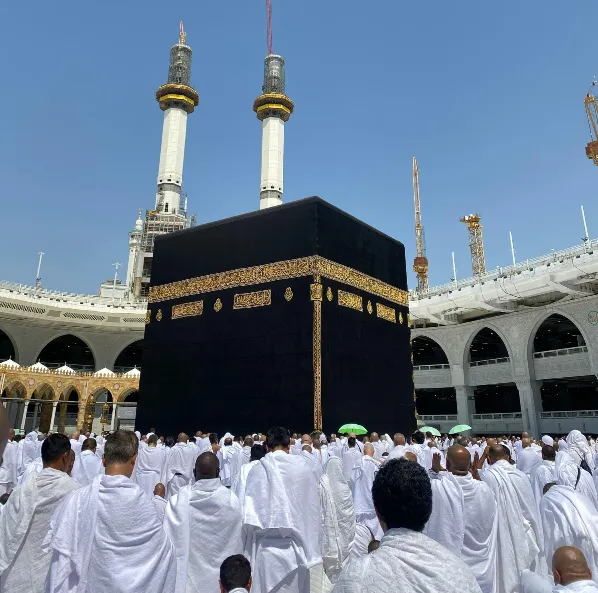Calls for intervention by Dirco to protect Hajj pilgrims
NOTICE OF MOTION

Hajj, an annual pilgrimage to Mecca, is one of the five pillars of Islam and a religious duty that must be carried out at least once by Muslims, provided that the person is healthy, fit and financially able.
Image: Pexels.com
THE Department of International Relations and Cooperation (Dirco) has noted the call by the Democratic Alliance (DA) to intervene to safeguard rights of pilgrims who intend on embarking on hajj next year.
This comes after the National Assembly passed a motion without notice, tabled by the DA last week, to protect Hajj pilgrims from rising travel costs following changes to the process.
In August, the Ministry of Hajj and Umrah (MOHU) in the Kingdom of Saudi Arabia issued a new directive which fundamentally changed the way in which pilgrimages are organised, removing the role of local tour operators in the process.
Hajj, an annual pilgrimage to Mecca, is one of the five pillars of Islam and a religious duty that must be carried out at least once by Muslims, provided that the person is healthy, fit and financially able.
Previously, travel operators completed an application with the South African Hajj and Umrah Council (Sahuc) based on requirements from the MOHU. Once all requirements were met, the operators would be accredited and were required to achieve the minimum quota as stipulated by the MOHU.
However, under the new directive, local tour operators will no longer be used, shifting the responsibility of service delivery directly to Saudi service providers. Coordination for these services will be handled through the Nusuk Hajj platform, managed by the MOHU.
Haseena Ismail, DA’s spokesperson on tourism, said: “We called for urgent intervention in the Sahuc controversy, condemning their attempts to monopolise hajj travel and highlighting serious allegations of misconduct.”
She said the motion calls for Dirco to intervene to safeguard pilgrims' rights and that the Cultural, Religious and Linguistic (CRL) Rights Commission investigate allegations of misconduct at Sahuc.
“We are calling for transparency in hajj operations, and the implementation of the Nusuk Hajj platform. We need urgent action to prevent the establishment of a monopoly in hajj travel, which would raise costs for pilgrims.
“All parties in the National Assembly supported our call for Dirco to intervene and provide clarity on this matter, and for the CRL Rights Commission to use its constitutional powers to ensure that pilgrims' rights are not infringed upon,” she said.
Ismail added that the DA were also calling on Dirco to urgently clarify South Africa’s position in the Nusuk Hajj platform, and to work towards securing a higher pilgrim quota.
“South Africa’s reduced quota remains a serious concern. Dirco must immediately confirm our registration status with Saudi authorities and explain why the allocation has been lowered.
“A decision that touches all South African Muslims cannot be made behind closed doors, with no transparency. The DA will continue to fight for the rights of South African pilgrims as the new Hajj season approaches,” she said.
In a statement last week, Sahuc confirmed it would no longer facilitate the Hajj process, including accrediting pilgrims for Hajj 1447AH (2026).
The council said South African pilgrims will be required to register, select, and secure their Hajj packages exclusively through the Nusuk Hajj platform in 2026.
In addition, they said that the South African quota was reduced from 2 500 under Sahuc, to 1 140 on the Nusuk Hajj platform.
Chrispin Phiri, spokesperson for the Minister of International Relations and Cooperation, said the National Assembly’s adoption of the motion without notice was noted.
“However, the department wishes to reiterate the information shared in its previous statement on August 15. On June 30, the Ministerial Committee on the Efficient Management of the Annual Hajj and Umrah Pilgrimages (MCHU) submitted its final report to DIRCO. The department is currently engaging with the CRL Rights Commission to ensure alignment with constitutional and community-based principles.
“DIRCO remains committed to providing consular support to South African nationals undertaking their religious obligations, including hajj and umrah, and to maintaining the positive reputation of the Republic of South Africa in the Kingdom of Saudi Arabia,” he said.